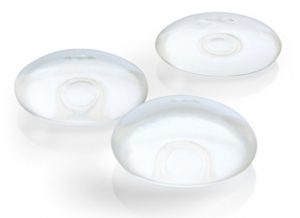Q1. What is ALCL?
 A1. The National Cancer Institute states that ALCL is a rather uncommon malignant tumor (Non-Hodgkin lymphoma). Estimations indicate that only 1 in 500,000 women in the U.S. are diagnosed with ALCL each year. These tumors may appear in various parts of the body at the same time including the bones, skin, lymph nodes, lungs, liver or soft tissue. While a diagnosis of ALCL itself is rare, ALCL of the breast is even less frequent. Approximately 3 in 100 million women in the U.S. receive a diagnosis of ALCL in the breast each year.
A1. The National Cancer Institute states that ALCL is a rather uncommon malignant tumor (Non-Hodgkin lymphoma). Estimations indicate that only 1 in 500,000 women in the U.S. are diagnosed with ALCL each year. These tumors may appear in various parts of the body at the same time including the bones, skin, lymph nodes, lungs, liver or soft tissue. While a diagnosis of ALCL itself is rare, ALCL of the breast is even less frequent. Approximately 3 in 100 million women in the U.S. receive a diagnosis of ALCL in the breast each year.
Q2. Is ALCL some kind of breast cancer?
A2. No, it is not. While ALCL has been found in the breasts of some women who have breast implants, it is not a form of breast cancer. ALCL is a kind of lymphoma, which is a cancer of the immune system’s cells. ALCL can occur in numerous parts of the body.
Q3. What symptoms will a woman with breast implants have if she has ALCL?
A3. Women with breast implants who have ALCL experience pain near their breast implant and notice a constant swelling. These ALCL symptoms occurred in women long after the surgical incision to place the implants had healed. Many times, these symptoms arose years after the implant placement.
When evaluated, women with ALCL and breast implants had fluid collection around their breast implants. Some patients reported a capsular contracture or palpable mass.
Q4. Where is ALCL commonly found in women who have breast implants?
A4. Case studies report that the ALCL is found in the vicinity of the breast implant. The ALCL was not found in the breast tissue, but in the fibrous scar capsule surrounding the implant. In the majority of cases, the ALCL cells were located in the fluid surrounding the implants or within the fibrous capsule.
Q5. Does the type of fill used in a breast implant – saline versus silicone – increase the risk for developing ALCL?
A5. Some scientists do suggest that the kind of fill used in an implant could be a risk factor. However, these suggestions have yet to be evaluated in a well-designed and sizable epidemiologic study. There is no sufficient data at this time that shows whether ALCL is found more frequently in women with saline-filled or silicone filled implants.
Q6. Does the breast implant’s shell – textured versus smooth – increase the risk of developing ALCL?
A6. Some scientists suggest that a textured surface could be a risk factor for ALCL. However, these ideas have not been evaluated in a well-designed and sizable epidemiologic study. The majority of ALCL cases that are reported in breast implant cases fail to include any information about the shell’s texture. For this reason, the Food and Drug Administration (FDA) is unable to determine whether ALCL is more commonly found in women with textured implants, as opposed to women who have smooth breast implants.
Q7. What did the FDA announce about the risk of ALCL in women who have breast implants?
A7. According to literature published from Jan 1997 to May 2010, 34 unique cases of ALCL were identified in women who had breast implants, worldwide. The FDA reviewed this literature as well as information from international regulatory agencies, breast implant manufacturers and scientific experts. The FDA is aware of approximately 60 cases (worldwide) involving women who have breast implants. Based on all available evidence, the FDA believes that a woman who has breast implants may have a slightly increased risk of developing ALCL.

Dr. Tal T. Roudner
Dr. Tal Roudner takes pride in offering his patients one-on-one care before, during and after their breast augmentation procedures. He is dedicated to his patients, which means he is always available to answer any questions, day or night. Call us today at 305-443-3531 to find out more about the breast augmentation procedures we offer.
